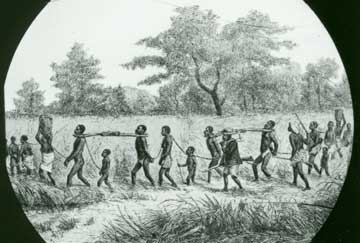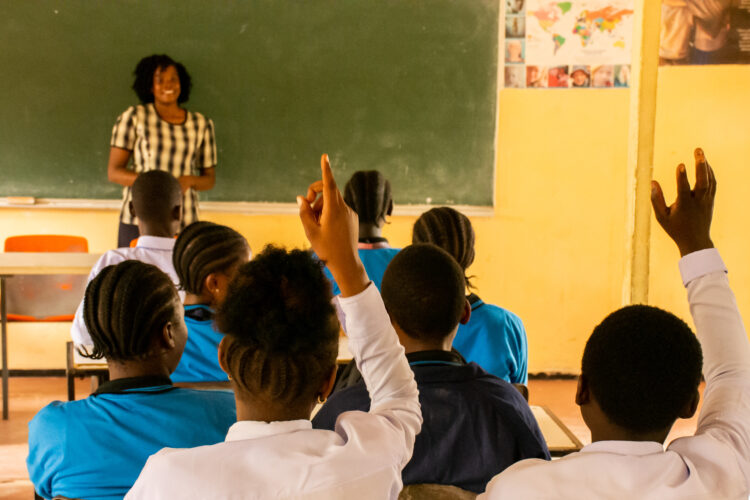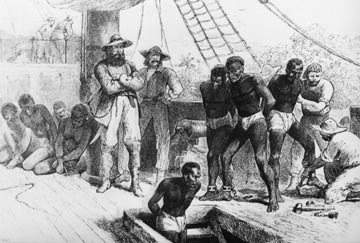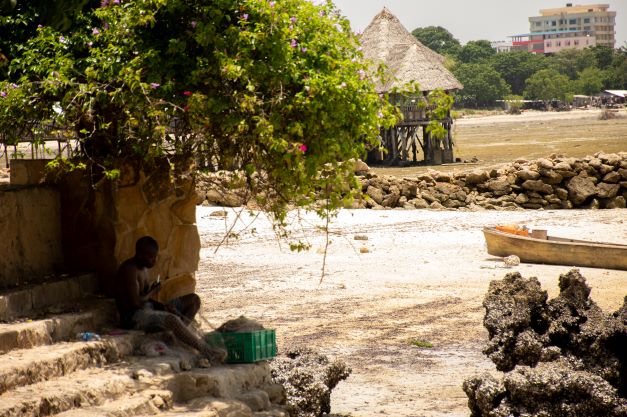Slavery resources

Speak out about modern slavery
We have a host of resources available for individuals, schools and faith groups
Download our free resources to help raise awareness of modern slavery in your communities

Assessing the Modern Slavery Impacts of the Nationality and Borders Act: One Year On
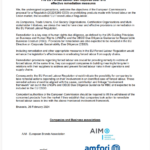
The EU Forced Labour Ban requires clear and effective remediation measures: Statement to the negotiators
As Companies, Trade Unions, Civil Society Organisations, Certification Organisations and Multi-Stakeholder Initiatives, we stress the need to have clear and effective provisions on remediation in the EU Forced Labour Regulation.
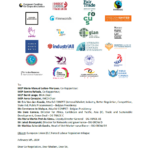
Open letter to the EU Forced Labour Regulators Negotiators
A letter, on behalf of the 33 undersigned civil society organisations and trade unions, to outline key issues that should be considered during the upcoming trilogues in order to make the proposed EU Forced Labour Regulation (FLR) a success.
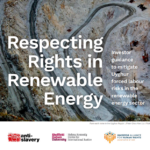
Uyghur Forced Labour in Green Technology
As the world continues to experience the devastating impacts of climate change, a full transition away from the fossil fuel economy is imperative. The solar and electric vehicle (EV) industries in particular, are critical to this transition. However, both industries have been heavily implicated in forced labour in the Uyghur Region, where the Chinese Government is systematically persecuting the native Uyghur and Turkic and Muslim-majority peoples. A central element of this persecution occurs through state-imposed forced labour.
Coordinated global action is needed to shift solar supply chains away from the Uyghur Region and prevent the solar and EV industries from becoming any more reliant on the Region than they currently are. A truly just transition from fossil fuels cannot be achieved as long the current reliance on the Uyghur Region remains.
With this objective in mind, Anti-Slavery International partnered with the Investor Alliance for Human Rights and the Helena Kennedy Centre for International Justice at Sheffield Hallam University to publish a series of reports to support key stakeholders in the clean energy transition to address forced labour of Uyghurs and other Muslim and Turkic-majority peoples in the production of green technology:
- For Investors: Respecting Rights in Renewable Energy Investor guidance to mitigate Uyghur forced labour risks in the renewable energy sector. This Guidance provides investment professionals with the tools to identify, exclude or engage businesses linked to human rights violations against the Uyghur people from their green energy portfolios. This Guidance also explores how investors can re-channel investments into companies which champion sustainability, innovation, and supply chain resilience.
- An accompanying annex to the Investor Guidance
- For Governments: Respecting Rights in Renewable Energy: Supporting Investment in Sustainable and Ethical Green Technologies: A policy brief to the UK Government. A coordinated and comprehensive response from governments and international institutions will be critical to helping investors and industries operationalise the changes necessary to shift the landscape of green energy production. As such, this policy brief includes recommendations on legislative and regulation actions to the UK Government to support a shift of clean energy supply chains away from the Uyghur Region. Although targeted to the UK Government, this policy brief includes recommendations which are applicable to other governments.
- For all readers: “Respecting Rights in Renewable Energy: Addressing forced labour of Uyghurs and other Muslim and Turkic-majority peoples in the production of green technology”. A summary of our findings and recommendations across the project.
You can also read our blog explaining the research, core recommendations and considerations for a just transition.
The project was funded through an open call for proposals by the Modern Slavery and Human Rights Policy and Evidence Centre (Modern Slavery PEC), which in turn is funded and supported by the UK Arts and Humanities Research Council (AHRC).
Photo credit: Peter Chou Kee Liu. Creative Commons license.
Out of Reach: Analysis of evidentiary standards in EU and US import bans to combat forced labour in supply chains
As the world’s largest single market, the European Union (EU) has an enormous opportunity to demonstrate global leadership in designing its instrument to address forced labour in corporate supply chains. This analysis by Anti-Slavery International and the European Center for Constitutional and Human Rights argues that a lower evidentiary threshold should be set in proposed EU Forced Labour Regulation.
General Approach on the proposed EU Forced Labour Regulation
Joint letter from civil society organisations and trade unions to urge the EU Council to speed up negotiations to adopt a General Approach on the proposed EU Forced Labour Regulation (FLR).
On October 16, 2023, the European Parliament’s lead committees, the Committee on Internal Market and Consumer Protection (IMCO) and the Committee on International Trade (INTA) adopted, with an overwhelming majority, their position on the proposed Regulation. This letter outlines four core elements that must be included:
- An evidentiary regime adapted to forced labour.
- Provisions on state-imposed forced labour.
- One-stop shop EU-wide complaints mechanism.
- Remediation.
Recommendations on responsible disengagement in the EU Corporate Due Sustainability Due Diligence Directive
Open letter from Civil Society Organisations’ to EU policy makers regarding recommendations on responsible disengagement in the Corporate Due Sustainability Due Diligence Directive (“CSDDD”), Articles 7(5) and 8(8) (suspension and termination of business relationships).
SDG Summit Gap on Forced Labour, Trafficking and Child Labour
As the SDG Summit draws to a close, we observed a worrying lack of meaningful global leadership on issues of forced labour, child labour and trafficking. In reaffirming their commitments to the 2030 Agenda and the Sustainable Development Goals (SDGs), Anti-Slavery International, alongside 90+ sector organisations, urges Member States to:
- Reaffirm their commitment, in the strongest terms possible, to the full, effective, and meaningful implementation of SDG 8.7.
- Recognising that SDG 8.7 is deeply interconnected with achieving most of the SDGs, significantly increase your Government’s efforts to address the root causes of forced labour, modern slavery, human trafficking, and the worst forms of child labour, inter alia, poverty, discrimination, gender inequality, climate change, and conflict.
- Ensure that all efforts and deliberative and decision-making processes are survivor-led, centred, and informed, and commit to adopting multi-stakeholder and intergenerational partnerships to support prevention, protection, and prosecution efforts.
See here for the open letter sent to UN Ambassadors from 73 sector organisations on 21 September.
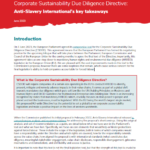
Analysis of European Parliament's proposal for the Corporate Sustainability Due Diligence Directive
On 1 June 2023, the European Parliament agreed its compromise text for the Corporate Sustainability Due Diligence Directive (CSDDD). This agreement means that the European Parliament has formed its negotiating position for the upcoming trilogue that will take place between the Parliament, European Commission and Council of the European Union for the coming months to agree the final text of the Directive. Importantly, this agreement takes us one step closer to mandatory human rights and environmental due diligence (HREDD)
legislation in the European Union (EU). We are pleased with the vast improvements made in this text to the Commission’s proposal, however there are some loopholes that remain, which cause serious concern for the final legislation’s ability to hold companies accountable for forced labour.

Human rights due diligence on the risks of modern slavery for displaced workers
This guidance, published with La Strada International, explains how businesses can prevent and mitigate some of the risks of labour exploitation, forced labour and trafficking affecting displaced people. It is aimed in particular at businesses who work in or with suppliers in countries neighbouring conflict zones or where there are high numbers of displaced people.
